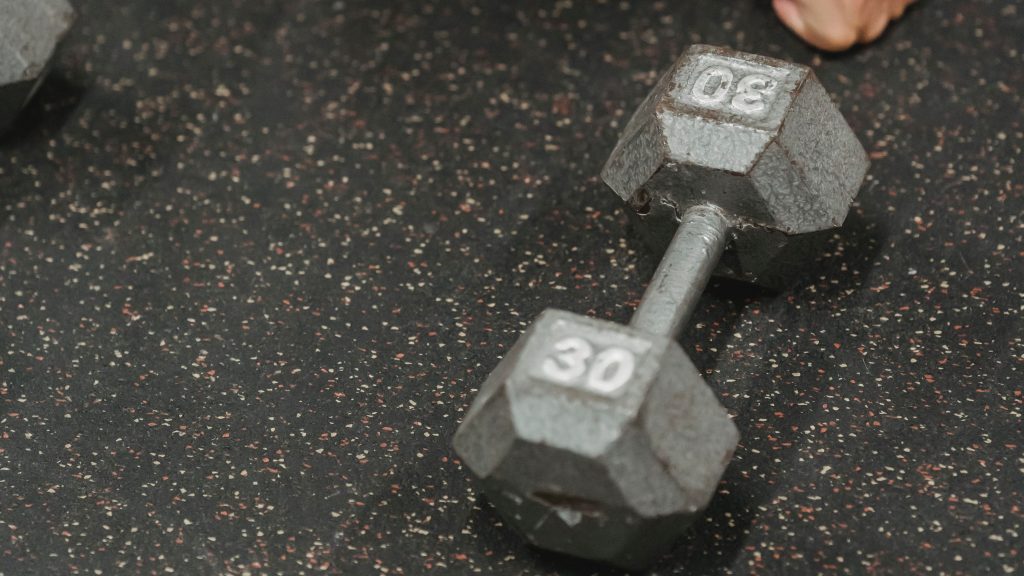Introduction:
Welcome to the world of bulking season, where the pursuit of muscle growth and gains takes center stage. In this article, we delve into the often overlooked yet incredibly powerful component of this journey: rest days. Many believe that more training equals more gains, but the truth is that optimal muscle development and progress rely on adequate rest and recovery. In this guide “The Power of Rest Days: Maximizing Gains during Bulking Season”, we explore the profound impact of rest days during bulking season and how they can maximize your gains. From understanding the importance of muscle repair and growth to incorporating active recovery techniques and prioritizing mental well-being, we will provide you with the essential insights and strategies to unlock the full potential of your bulking journey. Get ready to revolutionize your approach to rest days and take your gains to new heights.
- Briefly explain the concept of bulking season and its importance in muscle growth.
- Emphasize the significance of rest days in optimizing gains during this period.
Understanding Bulking Season:
- Define bulking season as a period of intentional calorie surplus and increased muscle mass development.
- Mention the typical duration of bulking season, which usually ranges from a few months to a year.
- Highlight the primary goal of bulking, which is to provide the body with an abundance of nutrients to support muscle growth.
The Importance of Rest Days:
- Discuss the misconception that more training equals more gains and clarify that rest days are crucial for optimal muscle development.
- Explain that rest days allow the body to recover and repair muscle tissue damaged during intense workouts.
- Emphasize that adequate rest promotes hormone balance and prevents overtraining, which can hinder muscle growth.
Muscle Repair and Growth:
- Describe the process of muscle repair and growth that occurs during rest days.
- Explain that rest days provide an opportunity for the body to rebuild muscle fibers, leading to increased strength and size.
- Highlight the role of protein synthesis in muscle repair and mention the importance of consuming sufficient protein during bulking season.
Optimizing Rest Days:
- Suggest incorporating active recovery strategies on rest days, such as light cardio or stretching, to enhance blood flow and aid in muscle recovery.
- Encourage engaging in activities that promote relaxation and reduce stress, such as meditation or yoga, as they can support overall recovery.
- Discuss the significance of getting enough quality sleep during bulking season, as it is a critical factor in muscle repair and growth.
Nutrition and Rest Days:
- Recommend adjusting calorie intake on rest days to account for reduced energy expenditure.
- Highlight the importance of maintaining a balanced diet and consuming nutrient-dense foods to support muscle recovery and growth.
- Provide examples of rest day meals or snacks that are rich in protein, healthy fats, and complex carbohydrates.
Listen to Your Body:
- Encourage individuals to pay attention to their body’s signals and adjust their training and rest days accordingly.
- Highlight the importance of individual variation and the need to find a balance between training intensity and rest.

Photo by Andres Ayrton: https://www.pexels.com/photo/thoughtful-woman-resting-in-sports-hall-6551139/
Balancing Rest and Training Days:
- Discuss the ideal frequency of rest days during bulking season, which may vary depending on factors such as training intensity, recovery rate, and personal preference.
- Suggest a general guideline of incorporating 1-3 rest days per week to allow for adequate recovery.
Progressive Overload and Rest Days:
- Explain the concept of progressive overload, which involves gradually increasing the stress placed on muscles to stimulate growth.
- Highlight that rest days play a crucial role in the process of progressive overload by allowing the body to adapt and become stronger.
- Emphasize that without sufficient rest, the body may not have the opportunity to recover and improve, potentially stalling progress.
Injury Prevention:
- Discuss the role of rest days in injury prevention during bulking season.
- Explain that overtraining and inadequate rest can increase the risk of muscular imbalances, joint stress, and overuse injuries.
- Encourage individuals to use rest days as an opportunity to focus on mobility exercises, stretching, and foam rolling to maintain flexibility and reduce the likelihood of injuries.
Mental Well-being and Rest Days:
- Highlight the importance of mental well-being during bulking season and how rest days contribute to overall mental health.
- Discuss the potential psychological benefits of rest days, such as reducing exercise-related stress, preventing burnout, and improving motivation.
- Encourage individuals to engage in activities they enjoy on rest days to promote a positive mindset and a healthy relationship with their fitness journey.
Incorporating Active Rest Days:
- Introduce the concept of active rest days, which involve engaging in low-intensity activities that differ from regular training routines.
- Provide examples of active rest day activities, such as hiking, swimming, cycling, or playing a recreational sport.
- Explain that active rest days can provide a break from structured workouts while still keeping individuals active and benefiting overall fitness levels.
Tracking Progress and Rest Days:
- Discuss the importance of tracking progress and adjusting rest days accordingly.
- Recommend keeping a training journal or using fitness tracking apps to monitor performance, recovery, and any signs of overtraining.
- Explain that tracking progress can help individuals identify patterns and make informed decisions about the frequency and duration of rest days.
Professional Guidance and Individualization:
- Highlight the value of seeking professional guidance, such as working with a qualified personal trainer or fitness coach, to create a customized bulking and rest day plan.
- Explain that professionals can assess individual needs, monitor progress, and make appropriate adjustments to optimize gains during bulking season.
- Emphasize the importance of considering individual factors such as fitness level, age, and any pre-existing medical conditions when determining the ideal rest day schedule.
Active Recovery Techniques on Rest Days:
- Explore various active recovery techniques that can be incorporated on rest days to enhance muscle recovery and minimize soreness.
- Mention options such as foam rolling, massage therapy, mobility exercises, and low-intensity resistance training.
- Explain how these techniques can help increase blood flow, reduce muscle tension, and promote faster recovery.

Photo by Andres Ayrton: https://www.pexels.com/photo/exhausted-young-woman-on-exercise-machine-6551405/
Rest Day Hydration:
- Highlight the importance of staying hydrated on rest days to support overall recovery and muscle function.
- Explain that proper hydration aids in nutrient delivery, waste removal, and maintaining optimal bodily functions.
- Provide recommendations for daily water intake and suggest incorporating hydrating fluids like herbal teas or infused water.
Psychological Benefits of Rest Days:
- Discuss the psychological benefits of rest days during bulking season.
- Mention how taking a break from intense training can alleviate mental fatigue and restore motivation.
- Explain that rest days allow individuals to focus on other aspects of their lives, promoting a well-rounded and balanced approach to fitness.
Flexibility and Mobility Training on Rest Days:
- Emphasize the importance of maintaining flexibility and mobility during bulking season.
- Recommend incorporating stretching exercises, yoga, or Pilates on rest days to improve joint mobility and prevent muscular imbalances.
- Explain that enhanced flexibility can lead to better overall performance and reduce the risk of injuries.
Importance of Sleep on Rest Days:
- Highlight the role of quality sleep in muscle recovery and growth.
- Explain that during rest days, the body has more time for restorative sleep, allowing for hormone regulation and tissue repair.
- Provide tips for improving sleep quality, such as establishing a consistent sleep schedule, creating a sleep-friendly environment, and practicing relaxation techniques before bed.
Periodization and Rest Days:
- Introduce the concept of periodization, which involves planned variations in training intensity and volume.
- Explain that incorporating rest days strategically within a periodized training program can prevent plateauing and optimize gains.
- Discuss the different phases of periodization, such as hypertrophy, strength, and recovery, and how rest days fit into each phase.
Long-Term Benefits of Rest Days:
- Emphasize the long-term benefits of prioritizing rest days during bulking season.
- Explain that adequate rest and recovery can prevent chronic fatigue, overtraining syndrome, and burnout.
- Discuss how maintaining a healthy balance between training and rest can lead to sustainable progress and a reduced risk of setbacks or injuries.
Rest Day Mindset and Self-Care:
- Discuss the importance of adopting a positive mindset towards rest days.
- Encourage individuals to view rest days as an opportunity for self-care and self-improvement.
- Highlight the potential benefits of engaging in activities that promote relaxation, such as taking a bath, practicing mindfulness, or indulging in a hobby.
Social Connection and Rest Days:
- Emphasize the value of social connection and support during rest days.
- Suggest spending quality time with friends, family, or workout partners on rest days to enhance overall well-being.
- Explain how social interaction can contribute to mental rejuvenation and motivation.
Avoiding Active Rest Day Pitfalls:
- Caution against overexertion or engaging in activities that may hinder recovery on active rest days.
- Advise individuals to choose low-impact exercises that do not overly tax the muscles or central nervous system.
- Encourage being mindful of the body’s signals and adjusting the intensity and duration of active rest day activities accordingly.

Photo by Allan Mas: https://www.pexels.com/photo/cheerful-ethnic-woman-resting-after-training-in-gym-5383490/
Monitoring and Evaluating Rest Days:
- Recommend regularly assessing the effectiveness of rest days in terms of recovery and progress.
- Suggest keeping a log or using fitness tracking tools to record how the body responds to different rest day strategies.
- Discuss the importance of making adjustments based on individual feedback to optimize rest day routines.
Balancing Cardiovascular Training on Rest Days:
- Address the inclusion of cardiovascular exercise during bulking season and its relationship to rest days.
- Explain that light to moderate cardiovascular activities on rest days can improve cardiovascular health without compromising muscle recovery.
- Provide examples of low-impact cardio exercises, such as walking, cycling, or using an elliptical machine.
Rest Days and Mental Focus:
- Highlight the role of rest days in maintaining mental focus and clarity during bulking season.
- Explain that allowing the mind to rest and recharge can improve concentration and decision-making when it comes to training and nutrition.
- Recommend engaging in activities that stimulate mental well-being, such as reading, journaling, or engaging in creative pursuits.

Photo by Julia Larson : https://www.pexels.com/photo/strong-ethnic-man-standing-on-knees-with-dumbbells-6456155/
The Importance of Consistency:
- Stress the significance of maintaining a consistent rest day schedule throughout bulking season.
- Explain that consistent rest days allow the body to adapt and recover efficiently, leading to more sustainable gains.
- Encourage individuals to prioritize rest days as an integral part of their training routine, just like they prioritize their workout sessions.
Customizing Rest Days for Personal Goals:
- Highlight the importance of tailoring rest days to align with individual goals and preferences.
- Discuss the different approaches to rest days, such as complete rest, active recovery, or focusing on specific muscle groups.
- Encourage individuals to experiment and find the rest day approach that works best for their body and specific fitness objectives.
Conclusion:
Incorporating rest days into your bulking season routine is a powerful strategy for maximizing gains and optimizing your overall fitness journey. By understanding the importance of rest days, you can unlock a myriad of benefits, including enhanced muscle repair and growth, injury prevention, mental well-being, and progress tracking.
Rest days provide your body with the necessary time to recover, repair damaged muscle tissue, and rebuild stronger than before. They allow for protein synthesis and hormone balance, facilitating optimal muscle development. Additionally, rest days play a vital role in preventing overtraining and reducing the risk of injuries, ensuring long-term progress and sustainability.
However, rest days are not just about physical recovery; they also contribute to mental rejuvenation. Taking a break from intense training can alleviate mental fatigue, restore motivation, and promote a balanced approach to fitness. Engaging in activities that promote relaxation, self-care, and social connection on rest days can further enhance overall well-being.
It is essential to personalize your rest day approach based on individual needs, goals, and professional guidance. Listen to your body, monitor progress, and make adjustments as necessary. Finding the right balance between training, rest, and self-care is key to achieving sustainable gains and maintaining a positive mindset throughout your bulking season.
Remember, consistency is crucial. Stay committed to your rest day schedule, just as you do to your training sessions. By prioritizing rest days as an integral part of your routine, you set the stage for long-term success in your bulking journey.
So embrace the power of rest days, optimize your recovery, and watch as your gains reach new heights. Your body and mind will thank you for the well-deserved rest, and you’ll be well on your way to achieving your fitness goals.
Keywords:
rest days, maximizing gains, bulking season, muscle growth, recovery, muscle repair, protein synthesis, hormone balance, overtraining, injury prevention, mental well-being, active recovery, flexibility, mobility, sleep, periodization, self-care, social connection, cardiovascular training, consistency, personalization.
For more hacks Click Here.








